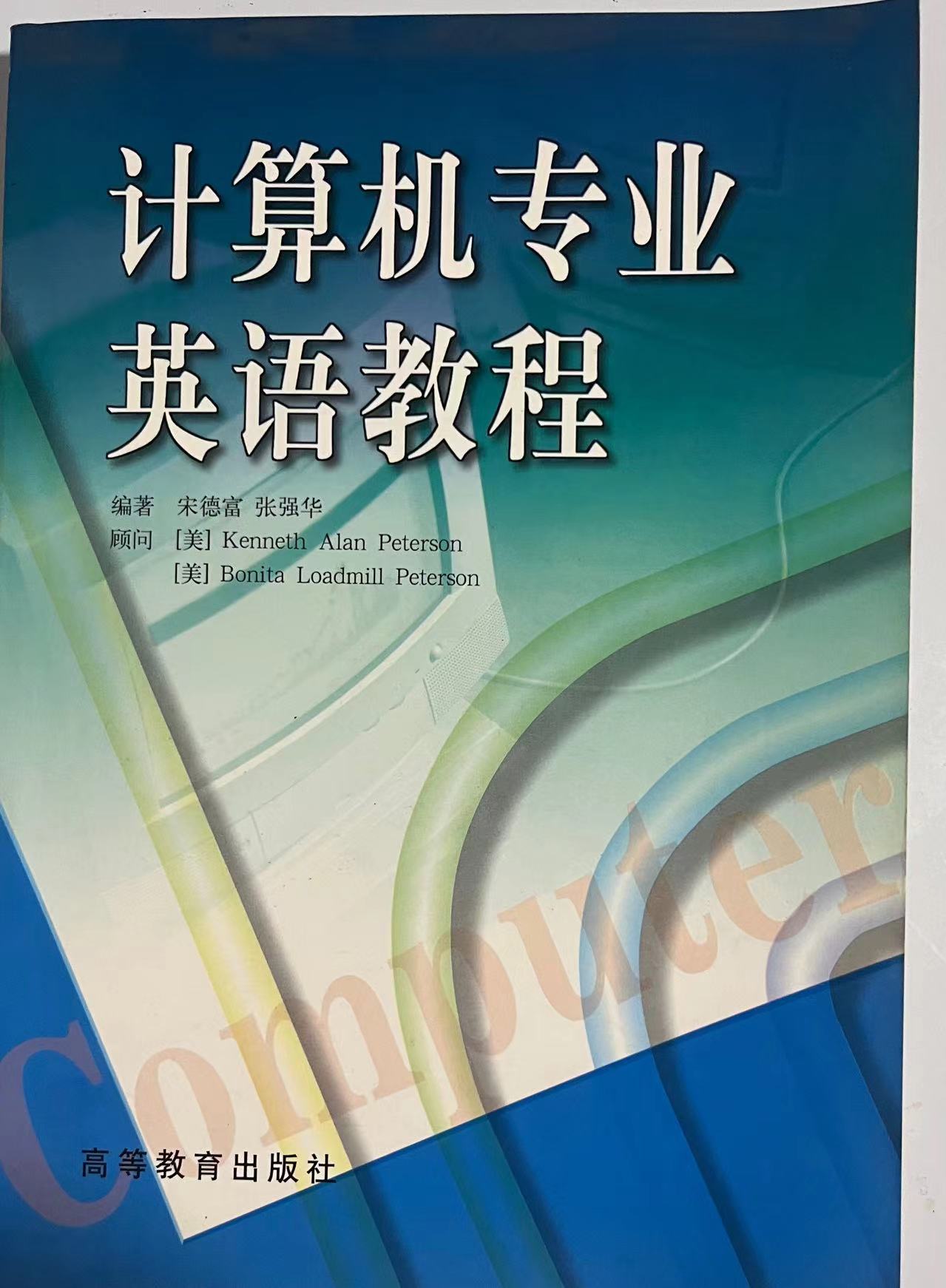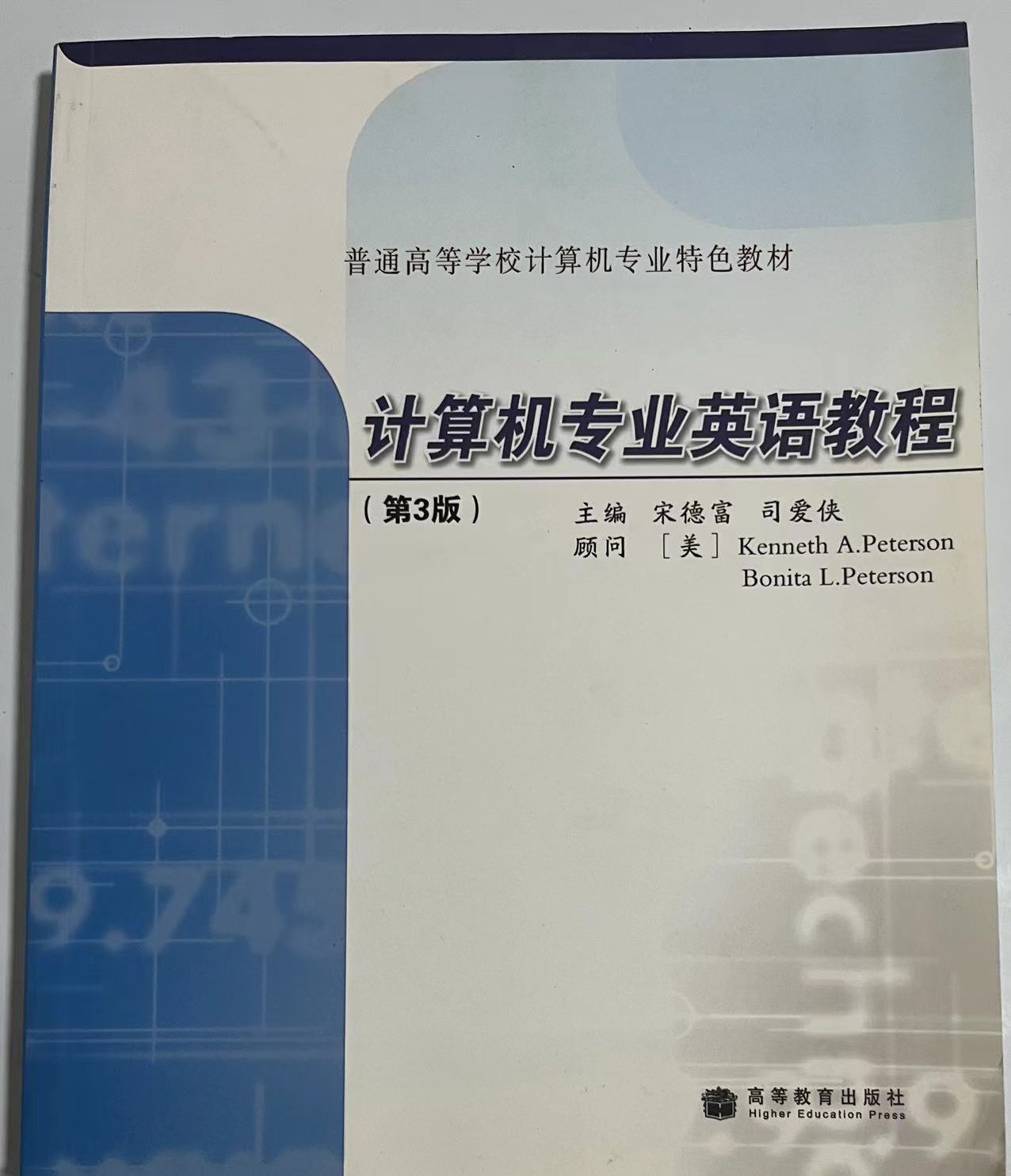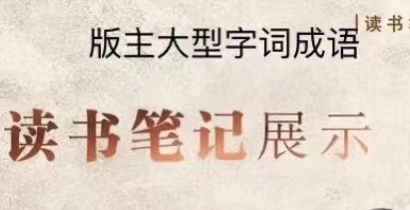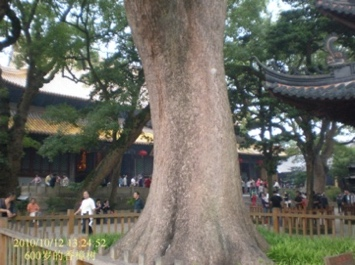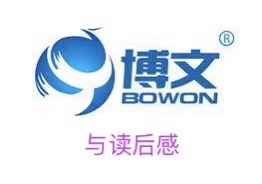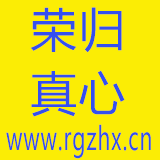Mr. Qianghua Zhang came to Pengda from a Xi’an factory in 1996 and his professional title was a senior engineer. Mr. Zhang graduated from the department of the computer science of Xi’an Jiao Tong University. He was born at the beginning of 1960’s, and was about 35 years old when he began to work in Xuzhou. At that time, I entered the period when life is half spent and we know what the fate is (quotation from Confucius). Later we became co-authors and good friends despite great difference in age. His wife, Aixia Si, was just an English teacher, a graduate from Xi’an International Studies University. Introducing both of them to Pengda meant providing our school with timely help, one’s major being English and the other’s computer science. Both were urgently needed teachers. It was very appropriate for them to write books about computer English and several books edited by them had already been published.
When I became familiar with the Zhang’s, I was anxious to cooperate with them. I already mentioned above that computer English dealing with the operating system could only be used by those who taught themselves and was hard to enter the classrooms of colleges and universities. I talked with Mr. Zhang about editing a computer English for the computer majors. The co-operation between us could make full use of our advantages. Qianghua took the charge of selecting materials and I was expert at editing. The translation work would be done by both of us, Mr. Zhang translated professional materials and I universal texts. The interdisciplinary cooperation was sure to realize complementation and double win. We would try our best to complete a competitive computer English course.
Mr. Zhang provided a list of contents and then I wrote a selected subject report, which was sent to director of High Education Press (HEP), whose name was Guohua Yu. I got to know Guohua Yu when I attended an annual meeting of Core English edited by Shanghai Jiaotong University in Beijing. He had a common touch and was very friendly to us teachers. He had meals and talked with us. I estimated that I had made almost no impression on him so I sent the report to him with one of my photos, reminding him of me. The assistant of Mr. Yu replied to me that the report was transferred to the editing office of the computer science and asked me to contact the office head.
In the summer vacation of 1997, I went to Beijing to attend a research and study conference of English teaching. Before I came back I went to the editing office of the computer science of the HEP and met with the office head, Mr. Bao. There were a lot of famous universities in the whole country and Pengda was vocational and lay at the bottom. As teachers of such an infamous vocational college, we wanted to compose a course used by other famous colleges and universities. Was it possible? It was unavoidable for me to have some inferiority complex. I forced myself to enter the office and talked with Mr. Bao about the selected subject. It was lucky that the editing office had not published such a subject and he told me that the item could be done. I was not sure and worried about whether the editing office head would keep or go back on his word. Word of mouth was of no guarantee. It was impossible to sign an agreement because the manuscript was out of sight. I wanted Mr. Bao to write a promise but was shameful to open my mouth. After a while an idea occurred in my mind, saying that we would organize an editing committee, which would be made of teachers from some prestigious colleges and universities. Such an action meant a promotion before the book being published, which would be useful for marketing. I hoped that Mr. Bao could write a certificate, saying that the Computer English Course had been planned to be published in 1998 and Mr. Defu Song and Mr. Qianghua Zhang were appointed to organize the manuscript. Bao said to me that the editing office had no seal and he had first to report to the HEP office. Bao promised to write the certificate, press the seal of HEP and send it to our school Pengda.
Qianghua and I thought that we could act now. He searched for materials in the library from a heap of books coming from the U.S. If he thought something as suitable he copied it. All the texts should be decided by him, as a Chinese saying: Different trades are separated by an obstacle like a mountain. When we almost finished choosing the materials, the certificate from the HEP came setting our heart at rest. We would use the certificate as an emperor’s sword to organize an editing committee.
Mr. Zhang had attended a meeting of the teachers from computer science departments in our province and had an address list. At that time, the email was not popular and we had to send snail mail to get touch with the teachers we had chosen. We sent our plan to them with the certificate from the HEP, which showed the truth. After they replied we discovered that they could only undertake the translation and proofreading work. As a result, the whole editing work fell on my shoulders. In the end the editing committee was made up of teachers from Hohai University (Nanjing), Suzhou Institute of City Building and Environmental Protection, the Logistics Academy of the Air Force, Wuxi Education College, Nanjing University of Posts and Telecommunications, Jiangsu University of Science and Technology (Zhenjiang, later renamed as Jiangsu University) and Jiangsu Institute of Economics and Management Cadres.
The work progress was decided by Mr. Zhang: First translated all the texts into Chinese, edited one unit after another and finished in the end. I had never translated the whole English text into Chinese. Furthermore, all the texts were about the computer I was not familiar with, accordingly a lot of obstacles were in the way. It was lucky for me that there was an American teacher in the Caterpillar English Training Centre, Mr. Peterson, who was a man with rich knowledge and expert at the computer. I gathered what we could not understand and asked him for help for several times. The old Peterson explained very patiently, making me suddenly see the light. God helped me. I had been hoping that a native teacher would come to our school. The Petersons came finally. It was wonderful. Without their help, how I could finish editing so many texts. It was hard to imagine. By the way, after Mr. Peterson, came several native teachers, whose answers to my questions were not satisfying. I always thought that it was lucky for me to get to know the Petersons. Later after they left China, I asked him a lot of questions by email and we have had touch with each other up to now. The Petersons were and will be counselors of the professional courses edited by us.
The editing work was done by me alone. First I decided the pattern of each unit: New Words, Technical Terms, Notes to the Text and Exercises. Exercises included comprehension, the meaning match of words or expressions, the use of the words or expressions, the use of frequently used verbs. I persisted in using professional sentences in the exercises, which added to difficulties, and avoided the same sentences as those in the basic English text book. The power I accumulated during working in the middle school by designing English exercises played a great role in editing. One text was read at least 6 times: (1) when new words were decided; (2) when technical terms were decided; (3) when notes to the text were written; (4) when choosing verbs to design exercises; (5) when you translate the text and (6) when you proofread the translation. That all the long difficult sentences in the text were explained in the notes required thorough understanding them and permitted you no dishonesty. Editing the course needed strict educational philosophy and the depth in the study. You must go all out, get rid of all kinds of interferences and prefer loneliness. One ridge after another, you could only seek for the amusement and enjoy the success by doing that. Recalling so much reminded me that I should criticize myself. As a dean, I was lost in editing and in my view I was busy attending to my proper works. Most of the department deans didn’t have such a subject to approach. As a result, I showed little interest in taking care of the emotions of other teachers in my department, so that I was not a qualified dean. Advantages and disadvantages are next door neighbors.
Teaching and administration work delayed my editing and we had to arrange the end work in the summer vocation of 1998. As soon as the vocation began, Mr. Zhang and I began to work in the computer lab of our department. Mr. Zhang was expert at operating the computer, esp. at the word processing system. He could quickly find the commands we wanted to use. It was a good time for me to learn to operate the Word program. What was impressed in my memory most was the “find and substitute” command, with which you could correct many of the same mistakes by pressing one key, or change many repeated forms in a while, sparing a lot of time. I was subdued completely by the power of the computer. However, without the operation by man, all the commands could not start working. Furthermore, operators could also combine the functions of commands and make them work together for them. My feeling was that if you want to learn the computer well, you should do a big job, and mobilize a lot of commands to do work for you. You’ll work like a sculptor and do not stop modifying your work until you are completely satisfied with it.
As an expert, Mr. Zhang paid careful attention to protecting our work already done. It had already taken us almost a year to finish so much work and it should be ensured not to be lost. I also formed good habit of saving into the hard disk what had been done in the computer. Every day when I decided to stop my work, I sent all the files reedited to the backup disks. In the last 10 days before completing the whole work, I used double backup floppy disks to increase safety factors, protecting the work from missing. In Mr. Zhang’s words, “if you have not backup what has been finished, you cannot fall asleep at night.” The dean of the computer science department lost the written work in the computer he spent three months completing, which made him a foolish figure. We should be careful enough not to make the same mistake.
At the end of August 1998, we finished writing the summary, preface, contents, all the units, and appendixes, saved them into a floppy disk and sent to Mr. Bao, the head of the computer editing office of the HEP. After consideration of the manuscript, the editor in charge sent us a publishing contract, asking us to accept royalty reward and the royalty rate was 6%. It was the first time for me to sign such a contract. Usually an author's royalty rate is dictated by their publisher. All book-publishing royalties are paid by the publisher. The counting method is as follows: cover price×the number of books sold ×royalty rate. For example, the book “Computer English Course” was printed 5000 copies for the first time and they were all sold. The cover price is ¥16.7, and the value of book prices ¥83500, which ×6% = ¥5010 we can get. If the book sells well and can be printed one time after another, the author’s reward can be increased. 6% royalty rate was quite low. When the contract for the second and the third version was signed, the rate was raised to 7% and 8% respectively.
In May of 1999, “Computer English Course” was born, whose symbolic value was that I had climbed a new step along my writing route. The book became professional English teaching material for computer science departments of a lot of colleges and universities, including some key ones. The HEP is a famous press and has high reputation. We can continue revise and correct until I am not able to do so. In January 2003 and 2008, the second and the third version came into being respectively, that means every four or five years, the course should be revised once. This book was one of key materials for my promotion to the rank of professor.
|
|
Computer English Course published in High Education Press (HEP)
Later Mr. Zhang collected materials and we co-edited another book called “E-business English Course”, whose pattern was similar to that of “Computer English Course”. The first version was published in Oct. 2003, and the second, in May, 2009, whose market was not as good as that of “Computer English Course”. According to the incomplete statistics of the feedback letters, the first two versions of “Computer English Course” were used by 132 colleges and universities. The competition of the text books of computer English grew rather intense and it was said that there were hundreds of versions, not including foreign versions used by some key universities. The Zhang’s (Qianghua Zhang and his wife Aixia Si) had composed three kinds of computer English, just like an open fair, with a boss occupying a few stalls. Accordingly, the third version was faced radical challenge. Although the royalty rate was raised, the royal value decreased, indicating that the number of schools using our book was reducing. It is very hard to be ivy.
April 6 of 2011 in Xuzhou
Proofreading on March 13 of 2012 in Chicago
Uploading on Aug. of 2023 in Xuzhou


